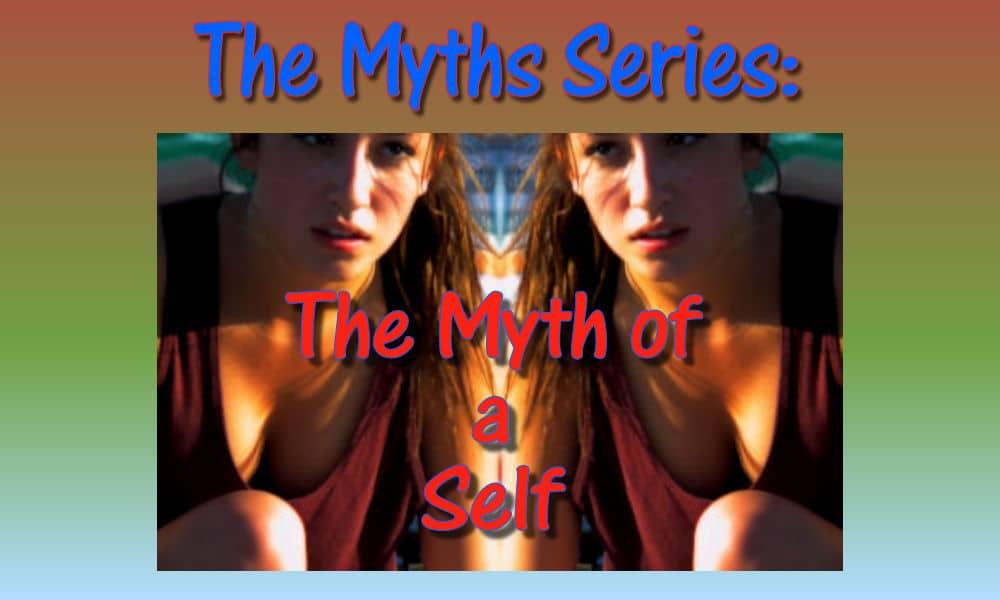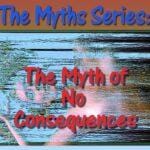- Is-ness: Life is not as it is. Life is as you are — The Myths Series
- The Myth of Absolute Truth — The Myths Series
- The Myth of Right and Wrong — The Myths Series
- The Myth of the Threat of Change — The Myths Series
- Unraveling the Myth of Shoulds — The Myths Series
- The Myth of Fairness — The Myths Series
- The Myth of No Consequences — The Myths Series
- The Myth of Altruism — The Myths Series
- The Myth of Easy — The Myths Series
- The Myth of Scarcity — The Myths Series
- The Myth of Limitations — The Myths Series
- The Myth of a Soulmate — The Myths Series
- The Myth of Sex Equaling Intimacy — The Myths Series
- The Myth of a Self — The Myths Series
- 5 Ideas About Compassion
The Myth of a Self — thinking you have a self is deadly
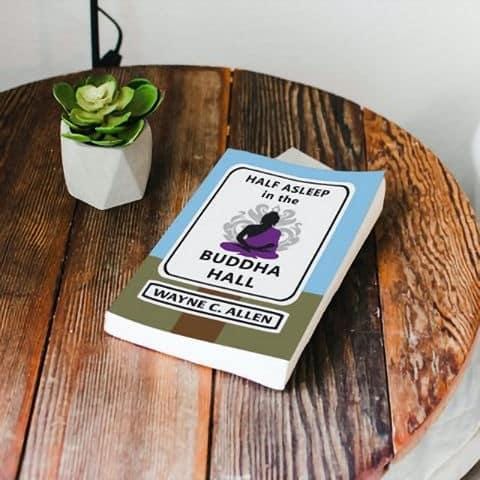
Looking for more on this topic?
Check out my book,
Half Asleep in the Buddha Hall.
My “Eastern” book takes you by the hand and helps you to find peace of mind.
Half Asleep in the Buddha Hall is a Zen-based guide to living life fully and deeply.
(Here’s a direct Amazon link)
Purchase digital versions (Apple, Nook, Kobo, etc.) from this page
Consider: How often do you find yourself miserable, judging your life to be awful or meaningless, and what happens then? Do you not find yourself asking some form of this question: “Why is this happening to me?”
Let’s explore the possibility that this is the wrong question…because there is no “you” that has a life.
Theoretical self-responsibility is popular. But being self-responsible, not so much. Suggest it, and out pop the excuses.
I notice that when I am having a miserable moment, I am creating it through how I am defining myself. This “misery-making” process is a dance between justification and story-inventing.
In order to escape into self-responsibility, I must take action. The drama stops as soon as I stop thinking that the story I tell myself is “real.”
Well, we might as well start with the hard stuff.
You do not exist anywhere but here and now. Never did, never will. Amen.
Here is a Zen joke.
I told it and Darbella said,
“Am I supposed to get that?“
I answered, “Nope.”
How many Zen Masters does it take to change a light bulb?
Answer: The rose bush in the garden.
Get it?
Probably not.
I am not going to explain it to you, or not really. It is worth pondering a bit, though. Here is a hint: Waking up requires the dropping of pat, simplistic, and obvious answers.
Think about how you define yourself. Your parents, tribes, and community, by the way, taught this defining process to you. I wrote about this in This Endless Moment, in the Deconstruction section.
The process of defining yourself is always (and only) comparative.
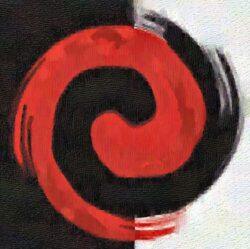
If you consider the physical world, you will realize that we know, say, light because there is its opposite, darkness. This is the meaning of the yin/yang symbol — black contains white, white contains black, and both are interrelated and required in order to “locate” the other.
We establish our sense of self in the same way. Each thing we think we know about our self is based upon the couplet “me/not me.” I am a male and am not a female. I have blue eyes and not brown eyes. I am human, and not a buffalo, although I was born there.
Our ego, then, is really nothing more than an accumulation of identities, or “hats” that we drag out, so as to have something to say about ourselves.
We can add to that the idea of cultural norms, which are nothing more than agreed-upon lists of “good/bad.” As we note by looking around us and around the world, the jury is out on the contents of said lists — of the rightness or wrongness of pretty much everything.
It gets even more interesting when we move to “internal states.” Internal states are nothing more than how I am shuffling my stories to “prove” what I have predetermined is the cause of my present situation or self-definition.
Remembering our couplet rule, consider the statement, “My parents didn’t bring me up right.”
For me, such statements raise the question, “Compared to what?” To someone who was “bought up right,” I guess. There is, however, a problem here.
The person making this statement is comparing herself to a person she imagines to have been brought up “right,” or to what she read in a book, or learned in a class. She is comparing herself to “non-reality,” and finding herself lacking.
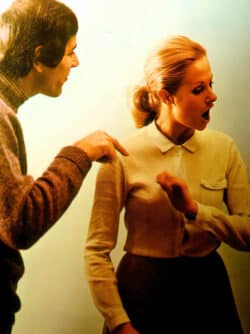
Let us suppose you talk to your best friend, whom you judge to be the “brought up right” example to your “not.” Your friend says, “But, I had a miserable childhood, I was deprived, even worse than you were!”
Now what can one do? Have a victim contest? Go to the crappy parenting tribunal, to get a “Who was raised worse” decision? (Actually, many people go to therapists for exactly this reason — to have an expert confirm their belief in their own victimhood.)
Then, the judgement starts. “I should not have been treated like that!”
This is simply and plainly silly.
“It’s not fair” changes nothing about who and where you are right now. Here is the bare truth of life (feel free to take notes ;-)).
Your life is as it is, and happened as it happened. It is a meaningless waste of time to suggest, “It should have been different,” because there is no different, and there is no should. Your life is (always and only) what happens, how you process it, and what you do with it.
While this may seem cold and calculating, defining yourself as a victim of your past changes nothing in the here and now. Endlessly telling all and sundry of your sad and sorry life changes precisely nothing in the here and now.
To repeat, “Why did this happen?” is a meaningless question. “What do I choose to do now?” on the other hand, has some potential.
A client once told me a story of her self-described “stupidity and ineptitude.” She had dropped out of High School, had several failed relationships, got pregnant, got married, got pregnant, got separated, and showed up on my doorstep, 3 year old in one hand and a one year old in the other. Woe, oh woe, was she.
Her story was a well-practiced, internal comparison with what her ego told her she “should have been.” She berated herself endlessly that, at 23, her life was, and would always be, a failure.
I said, “Have a breath, and then tell me what you might choose to do differently with your life.”
For some bizarre reason, she looked at me, smiled, and said, “I want to be a nurse.” I said, “Walk down to the High School, enroll, get some child care, go to College, become a nurse.”
Rather than argue with me about the impossibility of such a thing, she looked at me with great curiosity, said, “Hmm. OK,” and went and did exactly that. Four years later, Darbella and I attended her graduation as an R.N.
All I can say is that she stopped identifying herself using her internal story of how hard done by she was, stayed present, and started doing things differently. None of this was easy, but she did it.
So, who was she? Was she the dud, the failure, the poor abused victim? Was she the single mom with no hope? Was she the successful student, the nurse? Of course not. Those are just stories, and not very helpful ones.
As she dropped the stories, she discovered that her life was a flow of present moments. She was who she was, each moment of the walk, and nothing more (or less) than this.
She heard me asking a question, asking her to find another way of looking at things, (the rose bush in the garden) and this broke her cycle of seeing things only one way. She had a breakthrough and that breakthrough was all about letting go of pre-defining her future based upon her stories of her past.
The Zen-ish idea of “no self” is how life is. I cannot show you any more of myself than who I am right now. Even as I tell you stories, all you see is me, right now, telling stories.
You do not see the “reality” of the story — even if you were there, watching it unfold with me, you would still see it differently than I did. That is why we call them stories.
My story, my sense of my self, is not “true.” I am only who I am right now. In this way, a sense of a fixed self is simply a convenience.
It is a useful tool to define myself as “Wayne.” Having this identity makes it possible for you to write me a letter, allows the government to know what to put on my passport, and I can easily remember I wear a shirt with a 15-inch collar.
My mother mentioned that they were going to call me Darryl, and I am no more Darryl than Wayne. I may be male, but this label is only useful for entering the right washroom. I actually think that unisex washrooms make more sense anyway.
I grew up more privileged than some and less privileged than others, sucked at relationships until I didn’t, and to this day catch myself judging that I am unloved, or not loved enough, judging that I am excellent, or middling, or a failure at something.
I find myself imagining all kinds of dire outcomes for my life, and then I remember I do not have a life. I have this moment, and this moment is pretty damn alright.
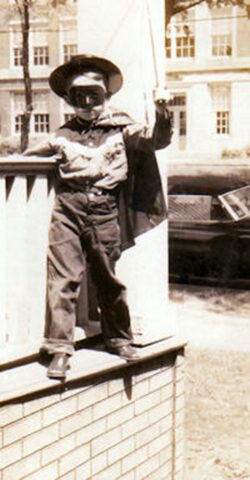
My story of my past is fluid and flexible, and I dredge up examples (or invent them 😉 ) that prove whatever point I am trying to make. I am thus “more” something and “less” another because of the stories I select.
Perversely, if I am desperate to prove some story regarding my imaginary life or self, I just twist the story in my head to make it fit. That will be the moment that Dar turns to me and says, “You might want to get over yourself.”
I give my head a shake and feel the heat of embarrassment.
It’s time to poke holes in the stories you tell yourself. I want you to join me and give your head a shake, and to wonder over the foolishness that goes on between your ears.
This foolishness, by the way, will go on until you die. All we can hope for is an acute awareness that it is happening, and then a sense of humour.
From this place, we can be like my client. She did not deny her past (hard to do, considering the two kids she carried with her,) nor did she declare her life to be a closed book.
She looked at her choices, noticed her judgements, and decided to do something different anyway.
I know that it is a stretch to understand that you have no past, no history, and no self. All you are right now is whatever you believe that you are. Your subconscious mind is expert and creating drama and “evidence” for whatever you are shovelling.
If you will consider the possibility that this is so, you can begin to act in this moment, not out of habit but out of choiceful focus. You can do what needs doing, in this moment, without all of the “But… I can’t! (Sob, sniffle.)” nonsense.
The essence of being is to recognize our non-being — our non-self-ing. In this space, I, and you, and the universe are One — the same “stuff,” manifesting for a while in a certain “package,” and soon to return to formlessness.
It is a lot to wrap your head around, and in a sense, you cannot. One moment it makes no sense, and in the next, it does, at some deep, intuitive level. It is what I call the moment-by-moment path of waking up.

